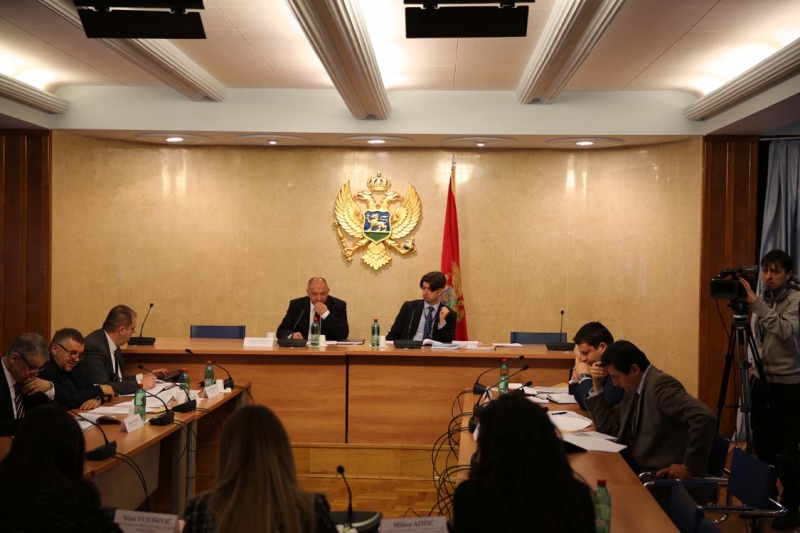At today’s Fifth Meeting, the Committee on Economy, Finance and Budget has considered the Draft Economic Reform Program (ERP) for the period 2017-2019.
The Committee has noted that the European Union, in the part of economic governance, at the Ministerial meeting of May 2016, made recommendations to Montenegro for the further conduct of economic policy, which should be analysed through the creation of ERP, and which stipulate that Montenegro needs to: 1. stabilise the share of debt in GDP when it comes to capital investments that have already been initiated in 2016 and decrease this rate in the continuation of the program period; 2. undertake urgent measures, including spending for public sector wages and pensions and begin to record budget savings and improve revenue collection, conduct a comprehensive review of tax expenditures and exemptions, as well as to increase tax in a way that will encourage growth; 3. develop a comprehensive strategy to further encourage the removal of problem loans by banks, with the participation of all relevant stakeholders, conducting thereby research of bank loans in order to better assess the primary credit dynamics; 4. ensure efficient, effective and independent regulatory and security bodies to carry out the complete opening of rail and energy market; 5. continue to facilitate the implementation of various measures of financial and non-financial support to SMEs in order to encourage participation in global value chains and support the development of the private consulting market; 6. extend service life and reduce disincentives to work by strengthening the links between active employment measures and social benefits, in order to improve market share in the long-term unemployed, women and young people and implement a strategy for the harmonisation of education system with labour market needs.
During the discussion, members of the Committee had the opportunity to learn about the document that represents the economic policy of Montenegro for 2017 and the medium term, as well as the basis for the economic dialogue with the European Commission in the process of EU integration. This program defines that economic policy measures should be built on key development priorities defined in the Montenegro’s Development Direction and other strategic documents, as well as the recommendations of the European Commission.
The Committee agreed to submit opinions and suggestions about the Draft Economic Reform Program to the proposer prior to the completion of public discussion on the said act. These opinions and suggestions are primarily related to priority reform measures of the ERP, such as: public financial management; energy, transport and telecommunications; development of the industrial sector; business environment and reducing the informal economy; research and innovation; foreign trade and investment promotion; education; employment and the labour market, etc.
The meeting also agreed, in line with the Law on State Audit Institution, to issue a public call for the appointment of one member of the Senate of the State Audit Institution.












